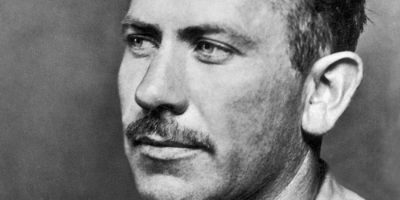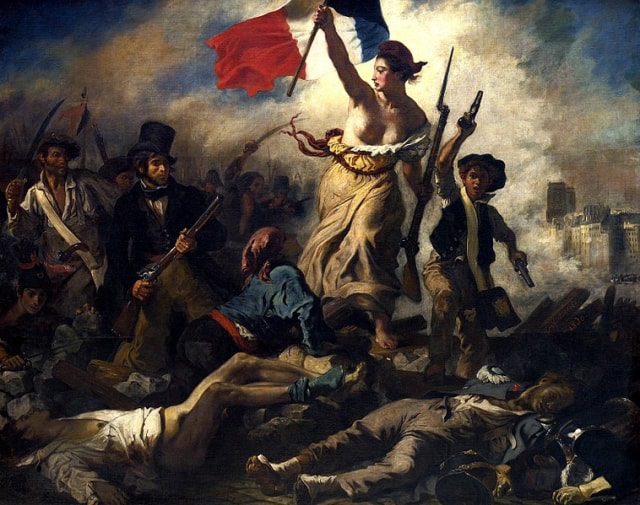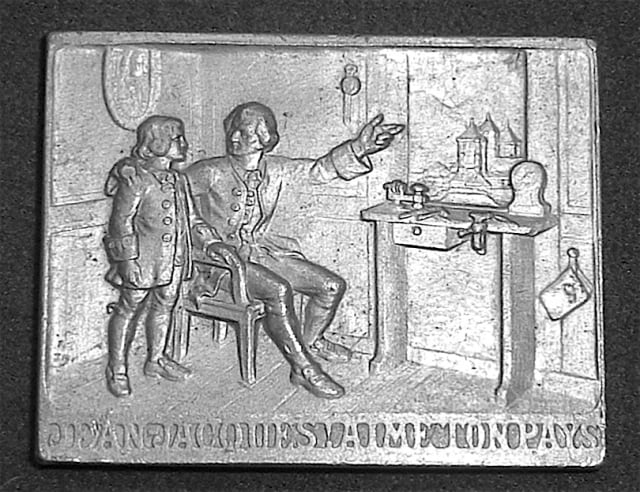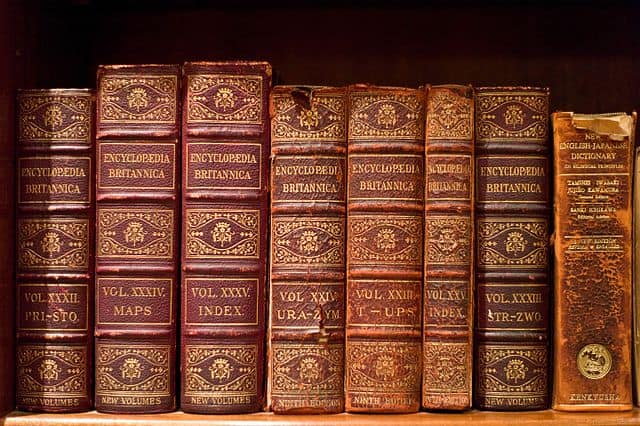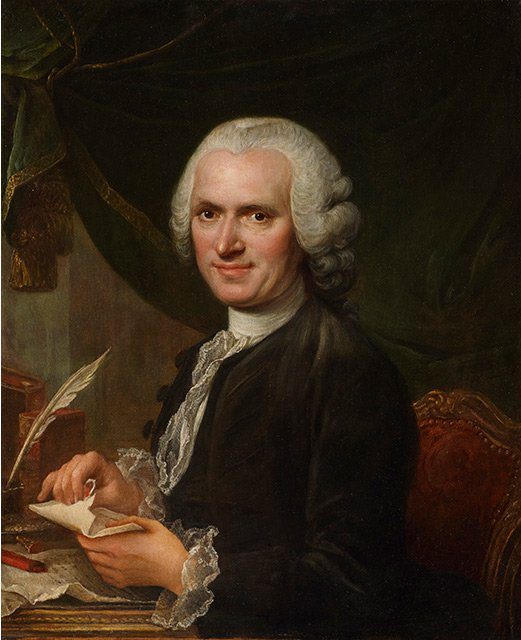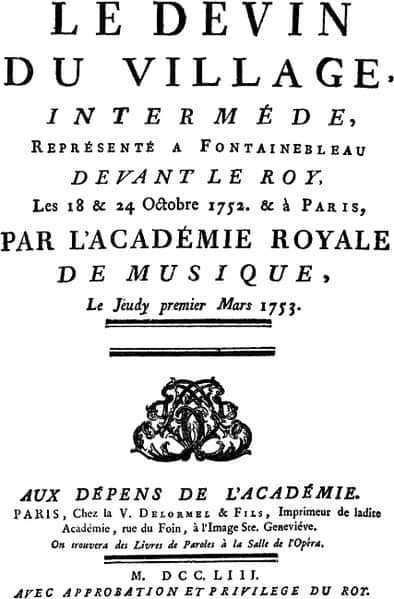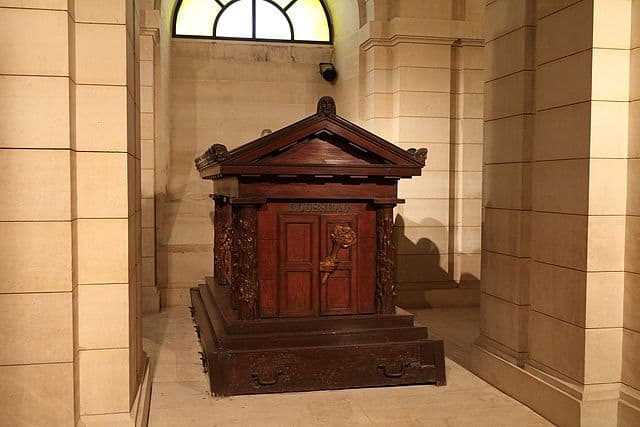Top 20 interesting facts about Jean-Jacques Rousseau
Originally Published by Molli in November 2019 and updated by Ruth in August 2022 and Updated by Vanessa R in July 2023
It seems like there isn’t a shortage of French writers, philosophers and artists, right?! Well, I’ve got another to add to your reading lists…Jean-Jacques Rousseau!
Rousseau was a Genevan philosopher, author and composer that lived and worked in the 18th century. Okay, so maybe he wasn’t French exactly, but he spent most of his adult life in France and his texts were written in French. Close enough!
If you’re curious to know what this scholar wrote about, you’ve come to the right article. Keep reading for my top 20 interesting facts about Jean-Jacques Rousseau.
1. Jean-Jacques Rousseau wrote the first modern autobiography
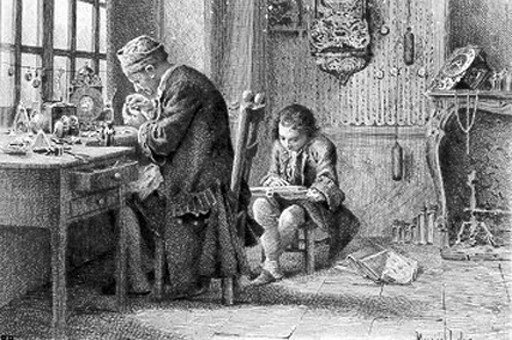
Jean-Jacques Rousseau reading to his father, as seen in an illustration from Confessions by Maurice Leloir – WikiCommons
Rousseau was born in Geneva in 1712. Almost everything that we know about Rousseau and his early life is thanks to his autobiographical work called Confessions.
If you’re interested in reading it, get ready for a massive undertaking. The work consists of 2 different texts that contain 6 books each! Which makes sense, as the collection tells the first 53 years of Rousseau’s life. Confessions was completed in 1769, but it wasn’t published until 4 years after Rousseau’s death, in 1782.
Until this point, no one had ever published an autobiographical text like this one. Notably, Rousseau shared a lot of intimate details about his private life. Thanks to Rousseau, the modern autobiography is born!
2. The Social Contract is perhaps Jean-Jacques Rousseau’s most famous work
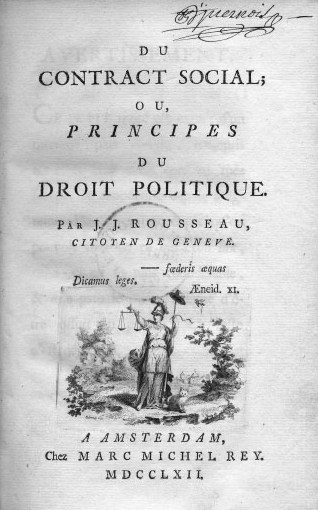
Du Contrat Social: ou Principes du Droit Politique Title page of the genuine first octavo edition (first state with standing Justice) of Jean-Jacques Rousseau’s Social Contract 1762 – Wikicommons
Rousseau published The Social Contract in 1762, under the name Du contrat social; ou Principes du droit politique (On the Social Contract; or, Principles of Political Rights in English).
Inside, he discusses his thoughts on how to create a successful political community. The book inspired reform all across Europe, especially in France. Notably, Rousseau states that monarchs were not divinely chosen to serve as leaders.
He also urges that only the people have the power to enact laws. This was scandalous for the time!
3. Jean-Jacques Rousseau’s works influenced the French Revolution
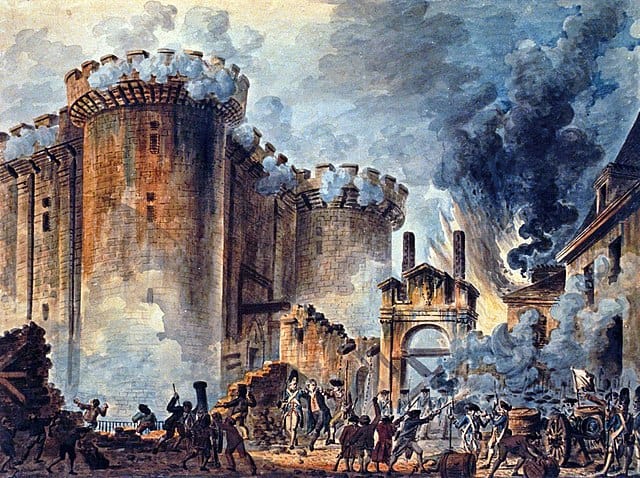
The Storming of the Bastille in Paris during the French Revolution by
Jean-Pierre Houël – WikiCommons
More than 10 years after his death in 1778, Rousseau’s works inspired the major figures of the French Revolution. For a society that was fed up with their corrupt monarchs, you can imagine that Rousseau’s words really struck a cord with them.
When King Louis XVI and Marie Antoinette were pulled down from power by the people, a group called the Jacobians emerged and took power. You may recognize the names of their leaders: a man named Robespierre and Saint-Just.
The Jacobians may have had good intentions, but after the French Revolution came a time in history called the Reign of Terror. Enter the guillotine, the killing machine that took the lives of the king and queen, and other French nobles.
Robespierre and his supporters were mostly inspired by Rousseau’s General Will. Inside, Rousseau urges leaders to work toward the common good of all people. In their own messed up way, the Jacobians felt that killing their corrupt leaders was in the name of the common good of everyone in France.
4. Jean-Jacques Rousseau believed in liberty and freedom…or did he?
In The Social Contract, Rousseau calls for everyone to be free. He believed that the concept of slavery was ridiculous, and that citizens had the right to vote on the rules and laws they were required to live under.
But, did Rousseau really believe in liberty and freedom for all? This is up for debate. The book opens with the now famous line,
“Man is born free, but everywhere he is in chains.”
Many people use this quote to promote freedom for all, but Rousseau actually contradicts himself as the book goes on. He says that the chains that hold men back actually guarantee his freedom. Say what?!
Although he never really explained what he means, we can assume that he felt that these symbolic chains that bind men are actually created by mankind itself and are a part of the general will. If you’re scratching your heads, it’s okay, me too! Since Rousseau never really explained himself we’ll never really know what he meant by this paradox.
5. Jean-Jacques Rousseau’s texts changed the way children were raised in the 18th century
Before Rousseau came along, children were typically treated like mini-adults, and were very severely punished if they acted out. Religion played a huge role in this, as all of mankind was believed to have been born “sinners.”
In his book Emile, or On Education, Rousseau argues that children need to be taught reason in order to become upstanding adults:
“The noblest work in education is to make a reasoning man, and we expect to train a young child by making him reason! This is beginning at the end; this is making an instrument of a result. If children understood how to reason they would not need to be educated.” – Rousseau, Emile, or On Education
Rousseau also believed that the countryside was the best place for a child to be raised. Nature was the calmer, healthier and of course, more natural choice for raising children than in the city.
He also introduced the idea that physical punishment was wrong and that it was better to make children understand the consequences of their acts through reason. He also urged learned through manual skills.
6. Jean-Jacques Rousseau wrote articles for the first Encyclopaedia
Rousseau developed a friendship with a man named Denis Diderot, who is most famous for creating the world’s first Encyclopaedia! He originally submitted several articles on music (more on Rousseau’s interest in music coming up!), and soon penned more on other topics.
His most famous article was actually on political economy, which he wrote in 1755.
7. Jean-Jacques Rousseau was a prominent figure in the Enlightenment movement
Along with figures like Kant, Hume and Adam Smith, Rousseau was a major player in the Enlightenment movement of the 18th century. His publications, Discourse on Inequality and The Social Contract are considered to be landmarks of the movement as a whole!
The Enlightenment movement focused on reason as the main source of knowledge. It also cherished ideals such as freedom, progress, toleration and the separation of church and state.
By the mid-18th century, Paris had become a hot spot for followers of the movement. Led by Rousseau and his friend, French writer and philosopher Voltaire, Paris had become a center of philosophical and scientific advancement.
Rousseau in particular modelled his ideal society on ancient Greece. He, like the Greeks, believed in a society based on reason, rather than on religion. He believed that all mankind had basic natural rights that we are born with, and can not be questioned by monarchs, government and the church.
These beliefs are some other ways in which Rousseau inspired the French Revolution!
8. Jean-Jacques Rousseau penned seven operas
Not only was Rousseau an author and philosopher, he was also a celebrated musician! He composed several pieces, including seven operas! He also contributed to music theory.
His style can be described as Baroque mixed with a new type of Classical that was emerging at the time. His most famous is perhaps a one act opera called Le devin du village (The Village Soothsayer in English). In Confessions, Rousseau cites his Aunt Suzanne as the reason for his interest in the subject. She was very passionate about music herself.
But, after the success of The Village Soothsayer, Rousseau soon decided to stop composing music. You’ll find out why in the next section!
9. Jean-Jacques Rousseau once argued that the arts made people immoral
Given the fact that Rousseau had written articles on music for Diderot’s Encyclopaedia, and had also written several operas, this interesting fact may come as a surprise! But, now that we know that Rousseau’s writing is full of paradoxes, it actually isn’t that shocking.
In a 1750 discourse called Discours sur les sciences et les arts (Discourse on the Arts and Sciences in English). Inside, he stated that the arts and sciences were responsible for the decay of morality in our modern society.
Rousseau was most likely referring to modern theatre performances, which he considered a luxury. You’ll remember that Rousseau was much more into spending his free time in nature. To each their own!
10. Jean-Jacques Rousseau is buried in the Panthéon
Rousseau died in Ermenonville, France in 1778. He had a stroke, and fell victim to cerebral bleeding. Another fact about Rousseau worth mentioning is that he fell quite often throughout his life. It is generally believed that these multiple falls led to the stroke that took his life. He was 66 years old.
Rousseau was originally buried on the Île des Peupliers, which is in Ermenonville where he passed away. But, on October 11, 1794, his remains were moved to the Panthéon, the giant mausoleum in Paris. He is buried next to his friend and fellow author, Voltaire!
11. Rousseau is also famous for his Social Contract, and its famous opening
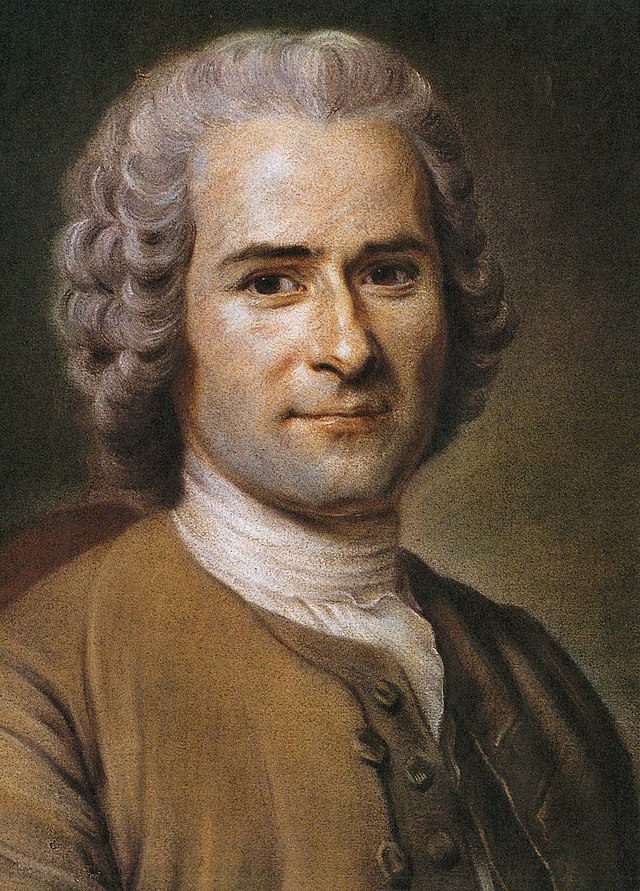
Jean-Jacques Rousseau (painted portrait) by Maurice Quentin – Wikimedia Commons
The Social Contract (1762) begins with the well-known words, ‘Man is born free, but everywhere he is in chains.’ But contrary to popular understanding, Rousseau is not arguing that the chains are necessarily bad.
Indeed, in a paradox that Rousseau never fully explained, man’s chains actually guarantee his freedom. This is because Rousseau saw the metaphorical ‘chains’ which bind us all as part of the general will.
12. Rousseau’s ‘noble savage’ idea was central to his Social Contract
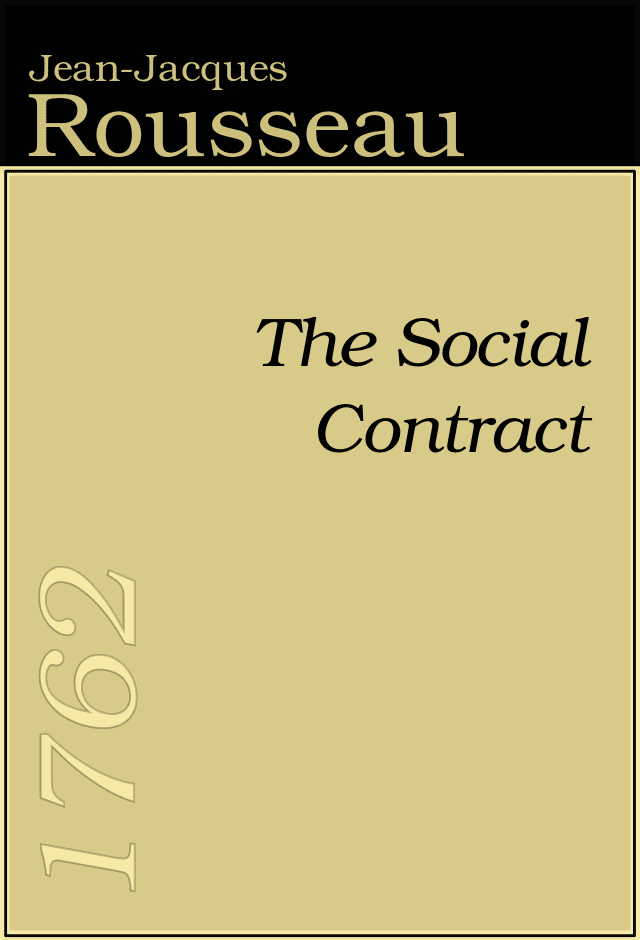
Wikisource Cover Rousseau “The Social Contract” by DutchTreat – Wikimedia Commons
Indeed, this primal purity led to Rousseau’s concept of the ‘noble savage’ and made him a proto-Romantic figure. Rousseau’s ‘noble savage’ an idea central to his Social Contract is purer than modern man because he is uncorrupted by modern civilization and by the notion of property.
This view not only looks forward to the Romantics’ dream of childhood as a purer time of life because it is untainted by the more materialist realities of existence but also helps to ‘square the circle and explain Rousseau’s argument in the first Discourse that the arts and sciences were corrupting influences because they took man further away from this purer state.
13. Rousseau’s break with the Encyclopédistes coincided with the composition of his three major works
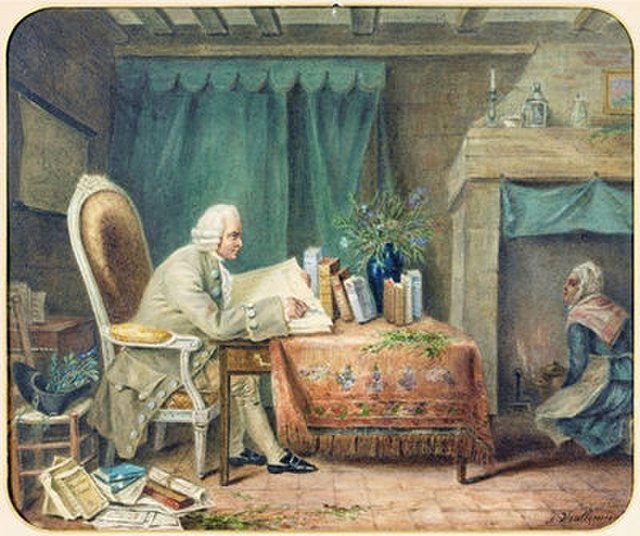
Jean-Jacques Rousseau travaillant à son herbier by Anne Nicole Voullemier – Wikimedia Commons
For all three of his major works, in all of which he emphasized his fervent belief in a spiritual origin of man’s soul and the universe, in contradistinction to the materialism of Diderot, La Mettrie, and D’Holbach. During this period, Rousseau enjoyed the support and patronage of Charles II François Frédéric de Montmorency-Luxembourg and the Prince de Conti, two of the richest and most powerful nobles in France.
These men truly liked Rousseau and enjoyed his ability to converse on any subject, but they also used him as a way of getting back at Louis XV and the political faction surrounding his mistress, Madame de Pompadour. Even with them, however, Rousseau went too far, courting rejection when he criticized the practice of tax farming, in which some of them engaged.
14. Rousseau was a fugitive for more than 2 years
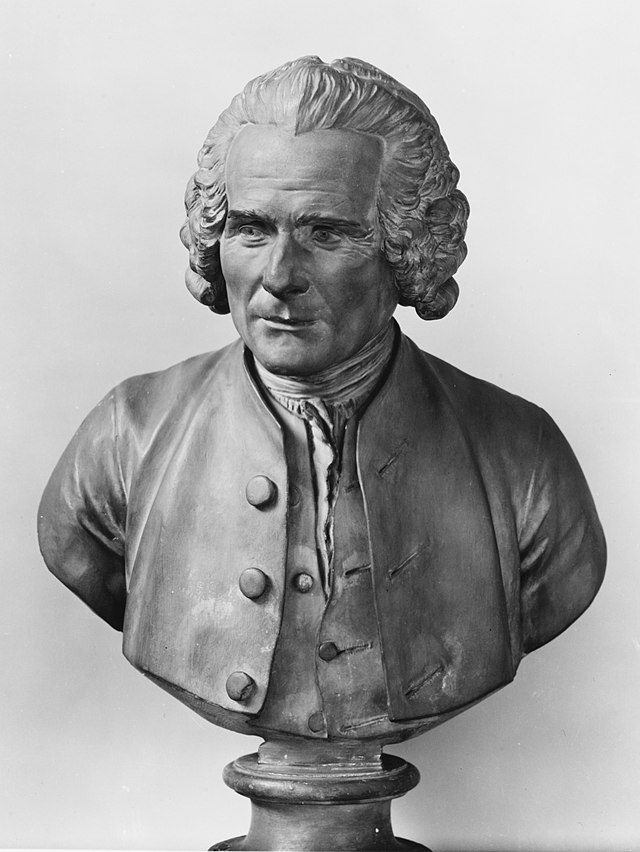
Jean Jacques Rousseau by Jean-Antoine Houdon – Wikimedia Commons
For more than two years from 1762 to 1765, Rousseau lived at Môtiers, spending his time reading and writing and meeting visitors such as James Boswell (December 1764). In the meantime, the local ministers had become aware of the apostasies in some of his writings and resolved not to let him stay in the vicinity. The Neuchâtel Consistory summoned Rousseau to answer a charge of blasphemy.
Since he wanted to remain in Switzerland, Rousseau decided to accept an offer to move to a tiny island, the Île de St.-Pierre, having a solitary house. Although it was within the Canton of Bern, from where he had been expelled two years previously, he was informally assured that he could move into this island house without fear of arrest, and he did so on 10th September 1765. Here, despite the remoteness of his retreat, visitors sought him out as a celebrity.
15. Rousseau met the Holy Roman Emperor Joseph II before his demise

Statue Jean-Jacques Rousseau Paris by Ernest Le Deley – Wikimedia Commons
In 1777, Rousseau received a royal visitor, when the Holy Roman Emperor Joseph II came to meet him.
His free entry to the Opera had been renewed by this time and he would go there occasionally. At this time also from 1777 to 1778, he composed one of his finest works, Reveries of a Solitary Walker.
Practical Information for visiting the Panthéon in Paris:
Entry fee: 9 euros
Opening hours: Every day 10am-6:30pm
Address: Place du Panthéon, 75005 Paris
Metro station: Cardinal Lemoine / Luxembourg
Website
16. De Warens took him as her lover

See page for author, Public domain, via Wikimedia Commons
Rousseau became de Warens’ lover when he turned 20. She was also having an intimate relationship with her housekeeper at the time. Rousseau was perplexed and uneasy about their ménage à trois relationship’s sexual aspects, but he always regarded de Warens as his greatest love. She was a bit of a spendthrift, had a huge library, and enjoyed entertainment and music. Rousseau was introduced to the world of letters and ideas by her and her circle, which included educated Catholic clergy.
17. He wrote music that was performed for King Louis XV
Rousseau kept up his passion in music. He composed both the words and the music for his opera Le devin du village (The Village Soothsayer), which was presented to King Louis XV in 1752. The work sufficiently pleased the monarch that he promised Rousseau a lifetime pension. To the disappointment of his friends, Rousseau rejected the great honour, earning him the nickname “the man who had denied a king’s pension.”
18. He also pursued an unconsummated romantic attachment with the 25-year-old Sophie d’Houdetot
Also, he pursued an unfulfilled sexual relationship with Sophie d’Houdetot, a 25-year-old woman, who served as the basis for his epistolary novel Julie, ou la nouvelle Hélose (also based on memories of his idyllic youthful relationship with Mme de Warens). Sophie was the relative and house visitor of Madame d’Épinay, Rousseau’s patroness and landlady, whom he treated quite snarkily.
19. He had 5 children with Thérèse Levasseur
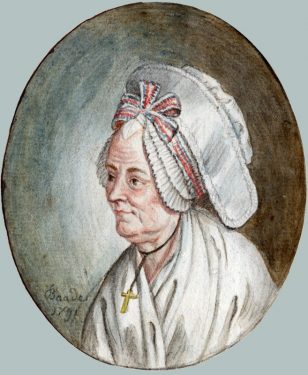
Johann Michael Baader (1736-1792), Public domain, via Wikimedia Commons
Thérèse Levasseur and Jean-Jacques Rousseau were together for a long time. They had a close relationship, and despite difficulties, they remained committed to one another. Rousseau had five kids with Thérèse, who played a significant role in his life. Nevertheless, the terrible death of all of their children, who did not live to adulthood, obviously strained their relationship. Notwithstanding these difficulties, Rousseau and Thérèse’s relationship lasted, and she remained an important source of comfort and company throughout his life.
20. He died of cerebral bleeding resulting in an apoplectic stroke
During a concert in the château that evening, Rousseau performed on the piano his own version of the Willow Song from Othello in response to a visitor’s comment that “men are wicked” on July 1.
He shared a delicious supper with Girardin’s family on this day as well the next morning, as he prepared to teach piano to Girardin’s daughter, he passed away from cerebral bleeding that resulted in an apoplectic stroke. It is now thought that Rousseau’s stroke may have been caused by multiple falls, including the incident with the Great Dane.
Conclusion
Did you know anything about Jean-Jacques Rousseau before you read this article? Do you feel like you learned a little something? I hope so! I also hope you’ll make a visit to the Panthéon if you find yourself in Paris!
If you are in Paris, you’re in luck (and also pretty lucky in general)! We offer several different walking tours here, all of which are led by our fabulous local guides! Click here to learn more and to make your booking.
Planning a trip to Paris ? Get ready !
These are Amazon’s best-selling travel products that you may need for coming to Paris.
Bookstore
- The best travel book : Rick Steves – Paris 2023 – Learn more here
- Fodor’s Paris 2024 – Learn more here
Travel Gear
- Venture Pal Lightweight Backpack – Learn more here
- Samsonite Winfield 2 28″ Luggage – Learn more here
- Swig Savvy’s Stainless Steel Insulated Water Bottle – Learn more here
Check Amazon’s best-seller list for the most popular travel accessories. We sometimes read this list just to find out what new travel products people are buying.



